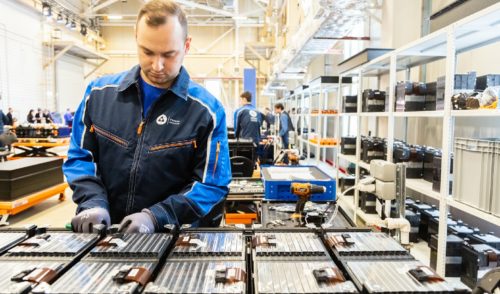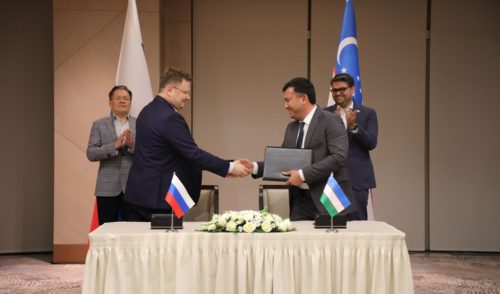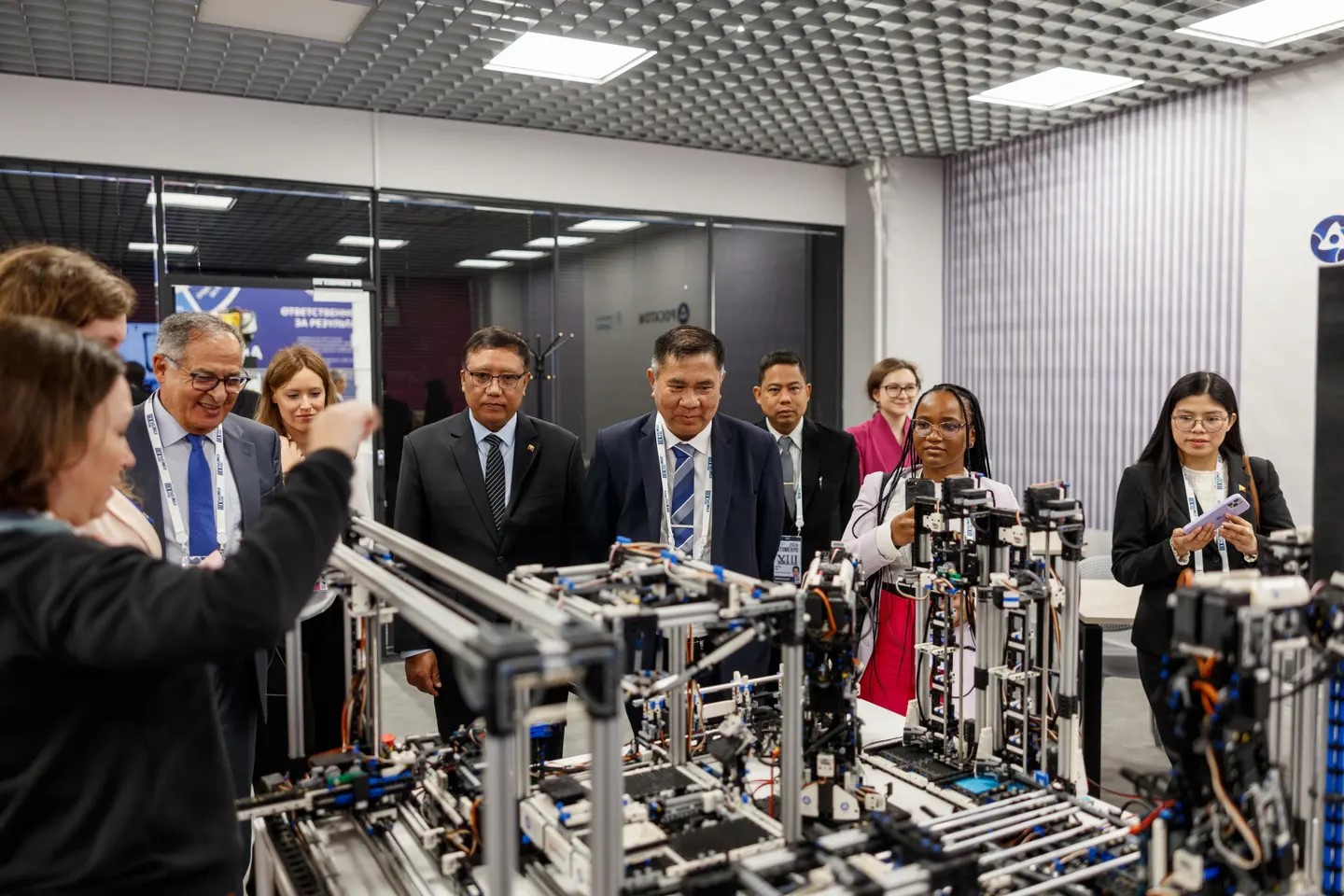
Embarking On Common Course
back to contentsDigitalization, nuclear medicine, education, gender balance and much more were discussed by the representatives of Egypt and other North African countries with their colleagues at the Atomexpo 2024 international forum. For more information on the forum read the News section of this issue.
International experts discussed the ways of introducing smart manufacturing practices based on advanced digital technologies at the session titled “Digital Factory and Smart Manufacturing: Facts and Future of Data Economy”. They called those practices an essential factor of making economies efficient and nations competitive.
Ekaterina Solntseva, Chief Digital Officer at Rosatom, noted the growing influence of artificial intelligence (AI) on the current industry trends. Describing the progress in implementing AI in the nuclear industry, she stressed the importance of systematizing the best Russian and international practices: “Having collected extensive data on the application of artificial intelligence worldwide, we merged it with our industry practices to draw Rosatom’s second roadmap for the AI development. It foresees the transition from pilot uses of artificial intelligence to sustained implementation and upscaling.”
Dr. Mohammed Saad Dwiddar, El Dabaa NPP project manager, pointed out that industry digitalization had brought the construction project to a new level of efficiency. He told the audience about the capabilities of the unparalleled Russian-designed Multi-D information management system for project resource management and activity planning. “The system tracks changes in the project delivery and monitors that all the technology requirements are met. We are using this digital tool in our project management routine: the digital system keeps information updated and generates reports for the managers. We will also be working to improve this tool,” Dr. Mohammed Saad Dwiddar said. He also noted the importance of training employees to use information management systems.
Nuclear medicine
Along with building the El Dabaa Nuclear Power Plant, Egypt and Russia team up to work in other fields, particularly in nuclear medicine. On the sidelines of the forum, Rosatom and Egyptian Med Pharma Group signed a roadmap to jointly promote Tianox on Egypt’s healthcare and pharmacology market.
Tianox is an innovative Russian-designed machine for nitric oxide therapy in adults and children, including newborns. It is used in pulmonology, cardiac surgery, transplantology, neonatology, rehabilitation and other areas. Tianox synthesizes nitric oxide, delivers it to the patient’s lungs, and controls its concentration.
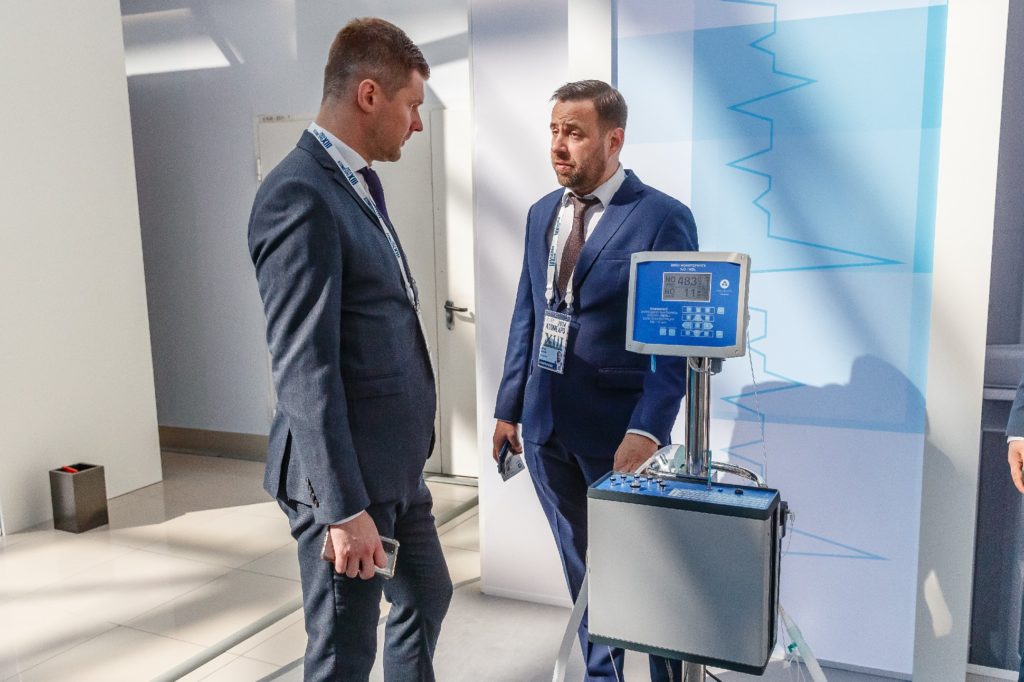
Last year, the parties signed an agreement to expand scientific and technological cooperation and deploy Tianox-based nitrogen monoxide therapies at Egyptian medical institutions. Over the past year, players of the Egyptian market of healthcare and pharmacology appreciated the capabilities of Tianox at their true value. At the new stage of cooperation, Egyptian medical institutions will have an opportunity to upgrade their equipment fleet and improve the quality of services. It is expected that Egyptian doctors will use Tianox first for the treatment of newborns and older children with pulmonary arterial hypertension, and then for the treatment and rehabilitation of adults with various conditions, including cardiovascular diseases.
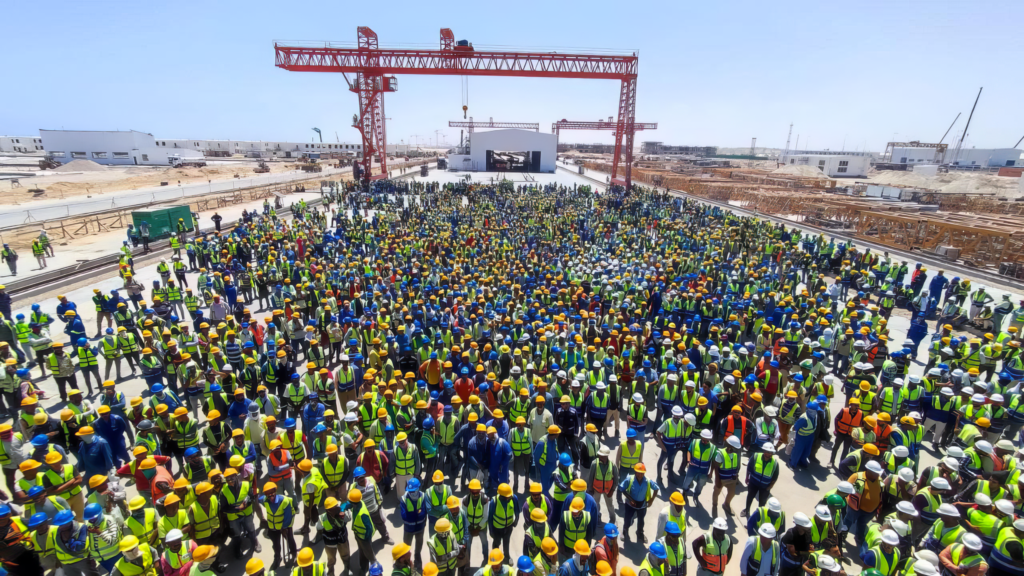
“Our immediate plans include registering the machine in Egypt as a medical device, and holding seminars for medical workers from Russia and Egypt to share their experience,” said Anatoly Myalitsin, Director of the Specialized Medical Equipment Division at Rusatom RDS.
Education and gender balance
Representatives of the North African countries also took part in the sessions dedicated to education and training. “Human resources are a key to everything. You can have the best regulation, the best legislation and integrated system management, but unless you have enough trained and efficient personnel, it is impossible to operate nuclear infrastructure,” said Khammar Mrabit, moderator of the Proactive Training for Generation IV session and a former head of the Moroccan Agency for Nuclear and Radiological Safety.
Atomexpo 2024 hosted a meeting for Russian universities’ international alumni who had received a degree in nuclear and related technologies. The meeting was attended by nuclear industry employees from Egypt, Bolivia, Ghana, Bangladesh, Congo, Uzbekistan and other countries. They spoke about increasing the share of carbon-free energy sources in the energy mix of their countries and noted the importance of continuing interacademic and international cooperation.
At another session of the forum, representatives of the business community, universities and public associations discussed the importance of achieving gender balance in high technology and innovation. One of the speakers at the session was Soheir Korraa from the Egyptian Atomic Energy Authority, President of Women in Nuclear Africa and Professor of Radiation Molecular Biology. The experts pointed out that women were still underrepresented in high-tech industries and stressed the need for a continuous dialog and experience sharing on this matter.



